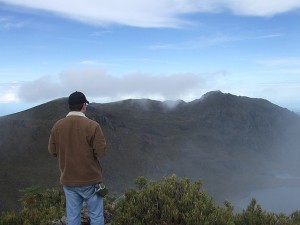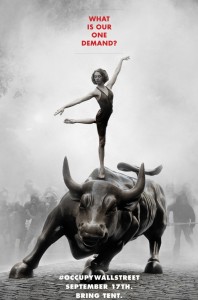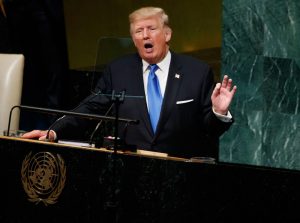I have expressed my concern many times in this blog about the concept, embraced by most on the right, of American Exceptionalism. I have long been fearful about what that sentiment could morph into.
Yesterday we had the President of the U.S., Donald Trump, lay claim to the ideological moniker of “nationalist.”
Now, many quickly came to his defense claiming that what he meant was simply that he was a patriot who cared deeply about his country.
However, there is a difference between what patriotism has always been understood to mean and what nationalism has actually and historically meant.
Here’s the way George Orwell drew the distinction in his famous 1945 essay, Notes on Nationalism…
By “nationalism” I mean first of all the habit of assuming that human beings can be classified like insects and that whole blocks of millions or tens of millions of people can be confidently labelled “good” or “bad.”
But secondly — and this is much more important — I mean the habit of identifying oneself with a single nation or other unit, placing it beyond good and evil and recognizing no other duty than that of advancing its interests.
Nationalism is not to be confused with patriotism.
Both words are normally used in so vague a way that any definition is liable to be challenged, but one must draw a distinction between them, since two different and even opposing ideas are involved.
By “patriotism” I mean devotion to a particular place and a particular way of life, which one believes to be the best in the world but has no wish to force on other people. Patriotism is of its nature defensive, both militarily and culturally. Nationalism, on the other hand, is inseparable from the desire for power. The abiding purpose of every nationalist is to secure more power and more prestige, not for himself but for the nation or other unit in which he has chosen to sink his own individuality.
So, it should alarm any historically educated thinking person to hear a sitting President of the U.S. claim to be a nationalist and even praise the term and encourage its use. Perhaps Trump has never read Orwell’s essay, or perhaps he is even unaware of the historical baggage associated with the term. I hope that’s true.
Then there’s also the common way the term nationalist tends to be used in the U.S.A., at least in recent years. Here I’m talking about the pejorative term of “white nationalist.” There are some claiming that Trump’s nationalism was actually a “dog whistle” to groups that claim to be white nationalists. I don’t know if that’s true and neither does anyone else.
Nevertheless, it doesn’t surprise me in the least that he did so.
As I said, the whole notion of american exceptionalism has always sounded a bit too nationalistic to my progressive ears. Even before his election Trump was an outspoken leader among the exceptionalism crowd, along with the white evangelicals who now wholeheartedly support him.
What truth is there to the claim in the first place? In what ways is America exceptional, meaning better than all the rest?
One could quickly answer, well, militarily and economically. Oh sure, in terms of military or economic might, no country can match the U.S.A, at least not quite yet. There are a few fast on our heels, but we’re still at least winning by a head in those regards.
However, to claim exceptionalism based on power alone seems to me to be falling right into the nationalistic trap that Orwell lays out in the quote above. Power alone does not make one better than another. If that were the case, the bully would be considered a paragon of virtue, rather than an object of scorn and ridicule.
However, that is exactly what the nationalist does. He claims to be better and desires to demonstrate that to others via aggressive exertions of raw military and/or economic power. The result is often alienation, much like the playground bully who no one wants to play with. Trump’s entire presidency seems to be about doing just that. In that sense I guess he really is a nationalist, but not in any way that is morally laudable as he seemed to allude to in that regretful speech.
As I was embarking upon my meditation this morning using the app called HeadSpace, the message conveyed at the beginning of the guided session resonated with me and I believe is consistent with the underlying message of this post. And that is…
whether we think we’re the best in the world, or the worst…both ideas are nothing more than concepts of the mind. Neither possesses any real objective standing, or truth.
The truth is that we’re all in this boat together and none is more valuable in any basic human sense than any other. We’re going to have to face that fact sooner or later.
We’ve all got to learn to get along in this rapidly shrinking (and expanding) world. We’ve all got to learn to respect one another’s basic right to human dignity, regardless of place of birth, color of skin, or professed faith.
Trump’s nationalism, which foments the idea that “we” are inherently better than “them”, just won’t cut the mustard.





